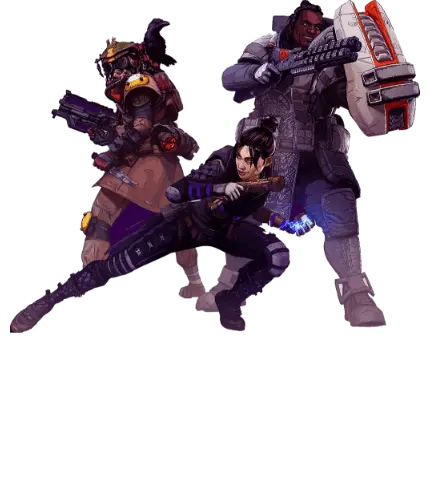Building the Skills You Need to Win
Esports has ushered in a new era of competitive gaming, captivating players and audiences alike. But the combatants you see in today's crowded, quaking esports arenas didn't just land there by magic. Most of them trained for years to gain the physical and mental skills needed to direct the game action and withstand the pressure of virtual battle.
So, let's dig into the world of esports training. With the right approach, new players can quickly gain expertise and prowess using your most important gaming tool and strategies. And seasoned players can develop new abilities—even physical endurance—to help you rise to the top of the winner's podium.
Importance of Training in Esports
The significance of esports training extends far beyond virtual victories. Engaging in rigorous training not only elevates your gameplay but also offers benefits that will resonate in the real world. As you strive to improve, you're not just enhancing your in-game performance but also fostering qualities like discipline, determination, and resilience that transcend the contest.
The benefits of esports training are multilayered. By investing time in practice routines, you're sharpening cognitive skills such as decision-making, quick reflexes, and strategic thinking. As your skills grow, so does your confidence, enabling you to navigate high-stakes situations with composure and self-assuredness.
However, the impact of esports training isn't confined to mental acuity alone. Maintaining physical health is equally crucial. Incorporating regular exercise, balanced nutrition, and sufficient sleep into your routine not only aids your performance but also contributes to overall well-being.
Setting Esports Training Goals
Setting actionable goals is the cornerstone of effective esports training. It's a step-by-step process, and your goals should be specific, measurable, achievable, relevant, and time-bound.
Whether you're a newbie or a seasoned player, the principle is the same. New players might aim to master specific game mechanics, achieve a certain rank, or improve win rates to a specific percentage. Experienced players can work on advanced movement or firing strategies, or ways to build better teamwork with others on your squad.
Consider a professional Overwatch player, for example. For them, a good short-term goal could be mastering a particular hero's mechanics, while a longer-term one might be rising to a specific position in the rankings by a certain date. Such clear-cut goals not only supply direction but also ignite a sense of purpose in your training journey.
Developing an Esports Training Plan
As a foundation to your efforts, start by developing a specific, robust training plan. Be sure to do an honest self-assessment of your strengths and weaknesses. By understanding where you excel and where improvement is needed, you can better tailor your training plan.
A balanced training routine encompasses various elements. Devote some of your time to refining technical skills like aiming, movement, and precision. Use other available moments to build your game sense and strategic thinking—they can be the big differentiators at high-level esports events.
For instance, a League of Legends player could allocate time to practicing last-hitting, map awareness, and champion mechanics. Or they can spend time reviewing game replays to analyze the decisions they made. Regular self-assessment allows you to spot patterns and adapt your strategies as needed.
Esports Practice Routines
They say “practice makes perfect,” and the phrase certainly holds true in the realm of esports. Constructing effective practice routines can be a big help in elevating your skills. Begin by tailoring your practice sessions to the specific game you're focused on. Game-specific drills, like aim training in first-person shooters like CS:GO, can significantly enhance your performance.
Warming up before diving into intense gameplay is helpful, too. Do warm-up exercises that stimulate your reflexes and cognitive abilities. This can include quick aiming exercises or cognitive challenges that prepare your mind for battle.
And remember that addressing weaknesses is a fundamental part of practice and improvement. Identify aspects of your gameplay that need to be better, whether it's map awareness or decision-making under pressure.
Physical Training for Esports
As it is in other pursuits, physical health is essential to esports performance. Try improving your hand-eye coordination with physical exercises—it can give you heightened reflexes and in-game precision. Or perform activities that enhance core strength, fine motor skills, and agility. All of it can help.
Maintaining a healthy lifestyle extends beyond exercise, of course. Adequate sleep is essential for cognitive function, memory consolidation, and reaction time. A balanced diet rich in nutrients fuels your body and mind, promoting sustained energy levels during extended gaming sessions.
In addition, respect that there's a risk of burnout in esports. Prolonged periods of gameplay can lead to physical strain and mental fatigue. So always include breaks into your gaming routine to help you stay fresh. And don't forget your other hobbies—there's more to life than video games—and spending time with friends and family. A well-rounded lifestyle supports both mental and physical well-being.
Mental Preparation for Esports
In competitive esports, mental fortitude—that is, a strong mental game—is as important as technical prowess. Begin by developing a pre-game routine that centers your focus and alleviates anxiety. Deep breathing exercises, visualization, and meditation can help calm your nerves and sharpen your concentration.
Staying focused during intense matches is essential. To help, develop mindfulness techniques that enable you to remain fully engaged, even when the pressure is on. Practicing mindfulness not only enhances your in-game performance but also fosters a sense of calm that carries over to real-life situations.
Managing stress and anxiety is important, too. Strategies like positive self-talk and progressive muscle relaxation can alleviate tension and promote mental clarity. Many successful gamers embrace a growth mindset in which they strive to view setbacks as opportunities for growth rather than failures.
Resources for Esports Training
Fortunately, esports training is easier today thanks to a wealth of resources at our fingertips. Online guides, coaching services, and training programs offer insights and structured approaches to skill development. Many online gaming platforms are a treasure trove of tutorials, strategy breakdowns, and analysis from experienced players and coaches.
Coaching services are another step some competitive gamers consider. Coaches offer personalized feedback tailored to your gameplay. They identify areas for improvement, offer strategic insights, and provide a fresh perspective on your performance.
Another esports training resource is online communities and forums. They offer a platform for players to share experiences, seek advice, and engage in discussions with like-minded individuals.
Staying Motivated in Esports Training
Training is a marathon, not a sprint, even in esports. And tracking your progress visually can serve as a powerful motivator. Try keeping a journal or digital tracker to document milestones, improvements, and achievements. Tangible evidence of your growth reinforces your dedication and inspires continued effort.
Seeking support from fellow players is another effective strategy. Form or join practice groups that align with your goals and interests. Collaborate with others on esports training drills, share insights, and exchange experiences. The synergy of a supportive community can fuel your motivation.
Above all, you need to maintain discipline. Establish a consistent training routine that accommodates your daily life and commitments. Even when motivation wanes, strong discipline will keep you on track.
Conclusion
As esports grows and the competition rises in intensity, the value of esports training will only continue to grow. The strategies outlined in this guide offer one roadmap to success. With a suitably specific training plan and mental fortitude, you can improve as a player and gain a greater competitive edge.
It's been said that mastery of a skill is a mix of effort and joy. You need to work hard and enjoy what you're doing. And esports training is a good example. With determination, resilience, and strategic training, you can unlock your full potential.













